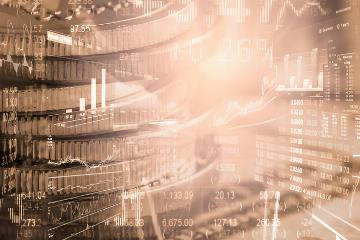Tariffs Will Harm the U.S. Economy
Advertisements
In a landscape where financial stability is increasingly volatile, Jamie Dimon, the CEO of JP Morgan Chase, has emerged as a prominent voice of cautionOver the past year, he has consistently warned of the looming possibility of stagflation in the United States—a condition not seen in decadesStagflation is characterized by stagnant economic growth accompanied by rising prices, and Dimon’s insights reflect concerns that many Americans may have to prepare for this grim scenario.
Following Dimon's predictions, prominent figures in the economic sector such as Federal Reserve Chair Jerome Powell expressed skepticismIn a press conference earlier this year, Powell dismissed the idea of imminent economic stagnation or a resurgence in inflation, stating, "I do not see stagnation in the economy, nor do I see inflation worsening again." This contrast highlights a divergence of views among leading economists: while some see a bright horizon for the American economy, others foresee dark clouds gathering on the horizon.
As analysts sift through the implications of rising prices and the potential for economic slowdown, they fundamentally question whether the U.S. is teetering on the brink of stagflation
For many, this evokes a sense of historical déjà vu, reminiscent of previous downturns that burdened the American public with soaring costs and limited growth opportunities.
With pending tariff implementations looming, the debate has intensifiedDimon's fears come in the wake of promises to enact significant tariffs on key trading partners such as Canada and Mexico, suggesting an immediate 25% tax on imports, alongside a 10% tax on Chinese goodsThe ramifications of such actions could be severe enough to push the already struggling U.S. economy toward a tipping point of inflation.
Among the curious whispers and public skepticism, some analysts are left contemplating the feasibility of these tariff strategiesCritics argue that these measures might merely serve as negotiation tools rather than definitive policiesYet, if enforced, the widespread impact of these tariffs could indeed foster a painful return to turbulent economic times, potentially echoing experiences from forty years ago.
To give context, Powell references the harrowing period of the 1970s characterized by the Arab oil embargo, which sent oil prices soaring and led to widespread economic repercussions
- Common Psychological Pitfalls for Investors.
- The Dilemma of Automotive LiDAR
- Bitcoin in 2024: Global Regulation Takes Shape
- Tongcheng Targets International Expansion After $8B Valuation
- Who Will Power the AI Boom?
It was a time ballooned by a 10% unemployment rate—a stark contrast to today’s figures, which, while showing an increase to 4.2% this year, still sit below historical averagesFurthermore, inflation has noticeably decreased in recent periods and now hovers only slightly above the Federal Reserve’s target of 2%.
Despite the fluctuations in the employment sector, the overall economic growth rate displayed resilience, clocking in at an annualized increase of 2.8% in the last quarterSuch growth, particularly in light of the Federal Reserve's recent aggressive rate hikes—the highest in over two decades—demonstrates underlying strengths within the economy.
Michael Feroli, Chief U.SEconomist at JP Morgan, weighed in on these economic discussions at a recent seminarHe unequivocally stated that the proposed tariffs' nature and scope are unlikely triggers for runaway inflation
While it is irrefutable that tariffs will lead to an increase in the market prices of many goods, pushing consumer costs higher, Feroli suggests the long-term view may depict this as a temporary price adjustment—a spike akin to the immediate increase seen with sales tax hikes.
However, Feroli urged caution, highlighting alternate scenarios where consumer sentiment shifts dramaticallyIf the populace begins to anticipate escalating inflation due to these tariffs, they may start pressing for higher wages to maintain their quality of lifeSuch demands, triggered by inflation expectations, could lead to a pernicious cycle of price increases, possibly intensifying inflationary pressures as materials and labor costs rise.
Moreover, if tariffs are imposed hastily, without allowing time for businesses to adapt their supply chains, the consequent uncertainty could stifle economic growth—forcing companies to pull back on investment due to fear of future unpredictability.
The broader economic implications are not only confined to domestic markets
Should foreign nations retaliate against American goods with their tariffs, it could inadvertently lead to layoffs and heightened unemployment levels—a dual-edged sword that could very well usher in a period of stagflation.
Wells Fargo analysts echoed similar sentiments, projecting that a quick implementation of tariffs following Dimon’s inauguration might significantly bolster inflation expectations while curtailing economic growth prospectsSuch scenarios make the chances of stagflation more tangible than many would like to acknowledge.
As the debates unfold and potential policies inch closer to reality, it remains imperative for both consumers and businesses to remain vigilantThe specter of stagflation serves as a reminder of fragile economic interdependencies and the unpredictable nature of markets influenced by government policyIn navigating this complex economic landscape, the lessons of the past become invaluable as we look to the future, understanding that history can offer both warnings and guidance as we chart our course ahead.

Leave a Reply